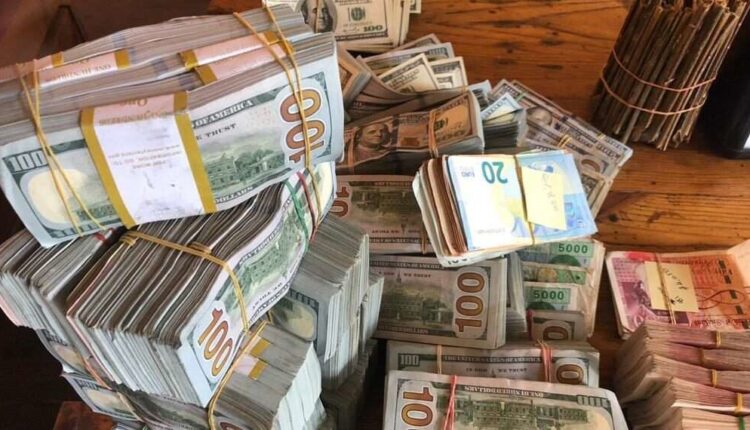In a strategic move to mitigate uncertainties surrounding foreign exchange availability, fourteen Bulk Oil Distribution Companies (BDCs) in Ghana engaged in a significant transaction with the Bank of Ghana (BoG) in the latest auction.
Seizing the opportunity presented by the central bank’s forex forward auction, these entities collectively acquired $20 million at a rate of GHS 12.39 per US dollar.
This marked the second in a series of forex forward auctions scheduled to unfold in the first quarter of 2024. The participation of BDCs in the auction was robust, with bids ranging from GHS 12.10 to GHS 12.29, strategically aligning with the BoG’s established forex forward rate of GHS 12.39.
The success of this auction is poised to play a crucial role in stabilizing fuel prices at retail pumps, particularly within the downstream sector responsible for pricing imported fuel. The Bank of Ghana’s dedication to supporting BDCs engaged in fuel imports is evident in its earmarking of $120 million for forex auctions in the first quarter of 2024.
This commitment underscores the central bank’s proactive stance in fostering a stable forex market and safeguarding overarching price stability, a move that is integral to the nation’s economic well-being.
The latest auction is a demonstration of BoG’s efforts to address the challenges posed by foreign exchange fluctuations. By providing BDCs with access to a reliable source of foreign currency, the central bank aims to ensure a consistent and secure supply chain for fuel imports, ultimately benefitting consumers through stabilized fuel prices.
Meanwhile, on Thursday, February 1, 2024, fuel prices in Ghana experienced an average increase of 2.3%. According to the Institute of Energy Security (IES), the marginal uptick in the price of finished petroleum products was attributed to the depreciation of the Ghanaian cedi.
Consumers heading to the pumps post-February 1 were met with a 2% increase in the price of gasoline (petrol), a 3% rise in diesel prices, and a 2% hike in liquefied petroleum gas (LPG) prices. These adjustments were a combined effect of the cedi’s depreciation and the international market price rise for these products, as stated by the IES.
Having this in mind, the addition of new dollar notes from the BDCs is expected to strengthen the local currency and take off the pressure for some weeks.
Meanwhile, in another financial move, the Bank of Ghana successfully raised GHS 1.6 billion through the issuance of its own bills with a 56-day maturity period. The auction allowed the central bank to sell short-term securities on the primary market, strategically managing money supply and liquidity in the national banking system.
The interest rate at which the BoG bills were auctioned was set at a substantial 28.99 percent, reflecting the central bank’s approach to regulate financial conditions and steer monetary policy objectives. While specific details regarding the value of bids made by primary dealers were not disclosed, the outcome of the auction underscores the central bank’s adeptness at attracting funding from the domestic financial market.
BoG bills are integral components of Open Market Operations (OMO), a vital monetary policy tool used by central banks globally to influence money supply. Through OMO, the central bank can adjust the supply of money in circulation, impacting the cost and availability of credit in the economy. In this case, the issuance of BoG bills serves as a mechanism for the Bank of Ghana to actively manage economic liquidity and maintain financial stability.
One noteworthy aspect of such operations is that the funds raised from the auction of BoG bills are typically directed towards supporting the government’s short-term financial requirements. This implies that the Ghanaian government may have secured these funds from the central bank to fulfil immediate budgetary needs or other financial obligations.
The ability of the Bank of Ghana to attract significant funding through its bills highlights the confidence of the domestic financial market in the central bank’s policies and its role in sustaining the stability of the country’s financial system. The utilization of such financial instruments not only aids in the effective implementation of monetary policies but also underscores the collaborative relationship between the central bank and the government in managing fiscal responsibilities.
As Ghana continues to steer the economic challenges, the latest successful auction of BoG bills adds a layer of financial resilience, showcasing the central bank’s strategic prowess in mobilizing resources to support both monetary policy goals and government financial requirements.




Comments are closed.